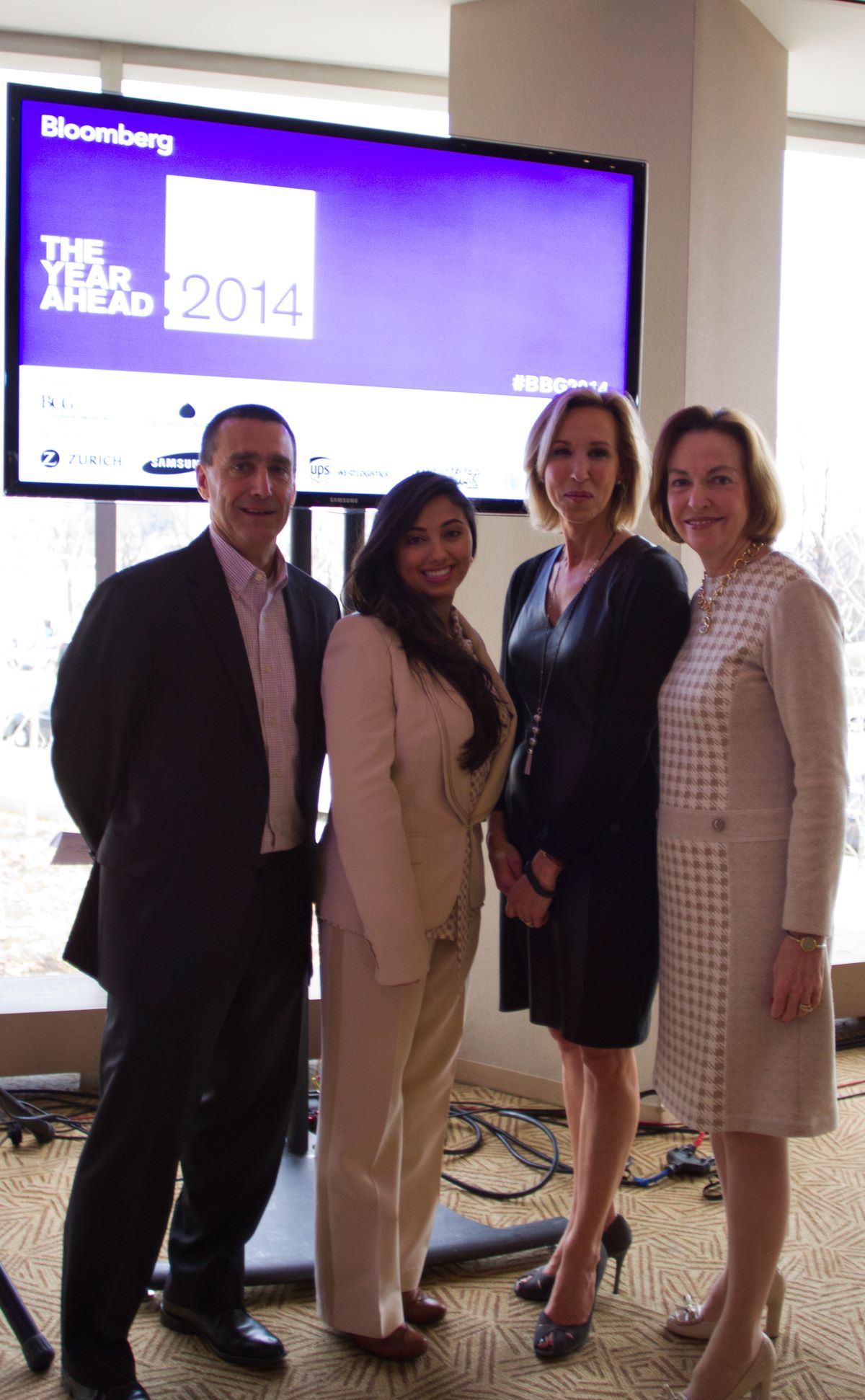
The millennial workforce is expected to be the largest in U.S. history, yet the national rate of unemployment for graduates stands at nearly eight percent.
Millennials think they’re ready for work, but many employers beg to differ.
These facts and perceptions helped set the stage for the “Millennials in the Workplace” panel discussion at the Bloomberg Business Summit in Chicago on Wednesday, November 20, 2013.
Led by Bentley University President Gloria Larson and Bloomberg Chief National Correspondent Carol Massar, the discussion featured Shama Kabani, Founder & CEO of the Marketing Zen Group, and PayScale President & CEO, Mike Metzger.
In front of an audience of influential business leaders from around the globe, the panelists had a spirited discussion on what it means for college graduates to be prepared, the value of millennials in the workplace and how colleges and businesses can work better—together—to prepare recent grads for their careers.
The discussion led off with preliminary research findings from Bentley University’s forthcoming preparedness study.
Businesses Have to Sell It
Massar opened up the discussion with a debate on the millennial generation’s perception of business careers.
Nearly six in ten college students are not considering a career in business, and 48 percent have not been encouraged to do so, Massar noted, citing the Preparedness Study, to lay the foundation for the first of four key discussion topics.
VIDEO: Young Workers Want an Environment That Matches Their Passion
It’s apparent that businesses are facing a perception problem, Massar noted. It’s not that millennials aren’t interested in business careers—they are—but they need one that matches their values and passions, she continued. Millennials may lump traditional businesses with the muck and mire of Wall Street scandals and negative big-biz media noise, and therefore seek employers that can offer social responsibility and green-conscious innovation to match their generation’s uniquely entrepreneurial spirit.
Payscale’s Metzger told the audience that the millennial generation is ten times more likely than their Generation X and Baby Boomer counterparts to pursue a role in entrepreneurship and marketing.
The definition of business is changing, he said, and the question is whether businesses change with it.
Businesses who find success with millennials have found ways to link workforce production with the passions of the individual, offered Bentley President Larson. “When millennials can align passions with businesses’ needs. They get it done every time, better than any generation.”
Lost in Millennial Translation
The panelists discussed another key insight from Bentley’s Preparedness Study: the fact that the majority of business decision-makers, corporate recruiters and higher education influential give recent college graduates a “C’ or lower on preparedness.
In this second video, the panel challenges this notion.
“They just do it differently.”
VIDEO: The New Definition of Preparedness
President Larson contended that the workforce paradigm is shifting. Millennials are results-oriented professionals with a different, abstract set of creative communication skills.
Instead of focusing on repetitive, process-driven tasks that are often associated with the traditional business territory, millennials can be game changers. They want to shake up their workplace, with the freedom to do so.
How long will it take for recent grads and businesses to speak the same language in the workforce, she wondered.
Millennials: Different AND Valuable
According to the Bentley study, 63 percent of business decision makers and 68 percent of corporate recruiters say that it’s difficult to manage millennials.
But are they difficult, or just different, asked Kabani
When asked about managing millennials, she offered insight into how to best handle this new generation of employees. “Millennials hate that red tape. We have a very bright millennial employee who quit her last job because she had to fill out three forms to get a stapler. This took half a day.” The upside? Millennials aren’t shy about providing feedback to help improve processes, she concluded.
VIDEO: A Management Philosophy for the 21st Century
Colleges Coming Around
Bentley’s preliminary research shows that 74 percent surveyed agree that business and universities should work together to properly prepare students for the workforce.
What does that mean for the evolving college classroom? Larson was asked.
“Pure liberal arts [colleges] are softening up on this idea. Internships are now the way to go, as well as corporate immersion classes,” she responded. “Colleges get that they have to bring business in and align curriculum around what’s actually happening [in the marketplace].”
VIDEO: Finding Solutions to the Preparedness Gap
Kabani offered a poignant closing thought.
“Instead of being called ‘Millennials,’ we could have just called this panel ‘How Do You Manage the Workforce?’ because that’s essentially who you’re working with.”
“So how can we work together to turn this around?” Massar asked. Stay tuned. Bentley University is inviting others to join it in seeking solutions in the coming months, as the bulk of The PreparedU Project’s findings are unveiled in early 2014.
What do you think should be done to better prepare millennials for today’s workforce?
You can join the conversation now at www.Bentley.edu/PreparedU, and share your thoughts on Twitter using #PreparedU.
For more coverage, please see the Bloomberg story on the panel discussion.

